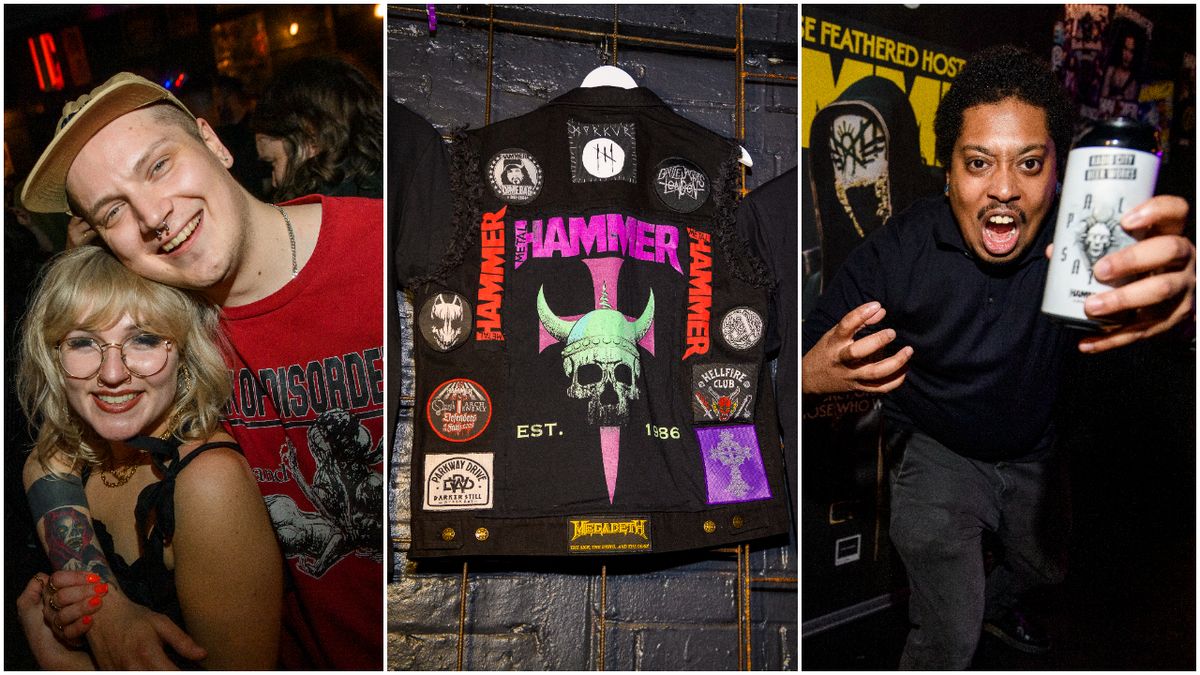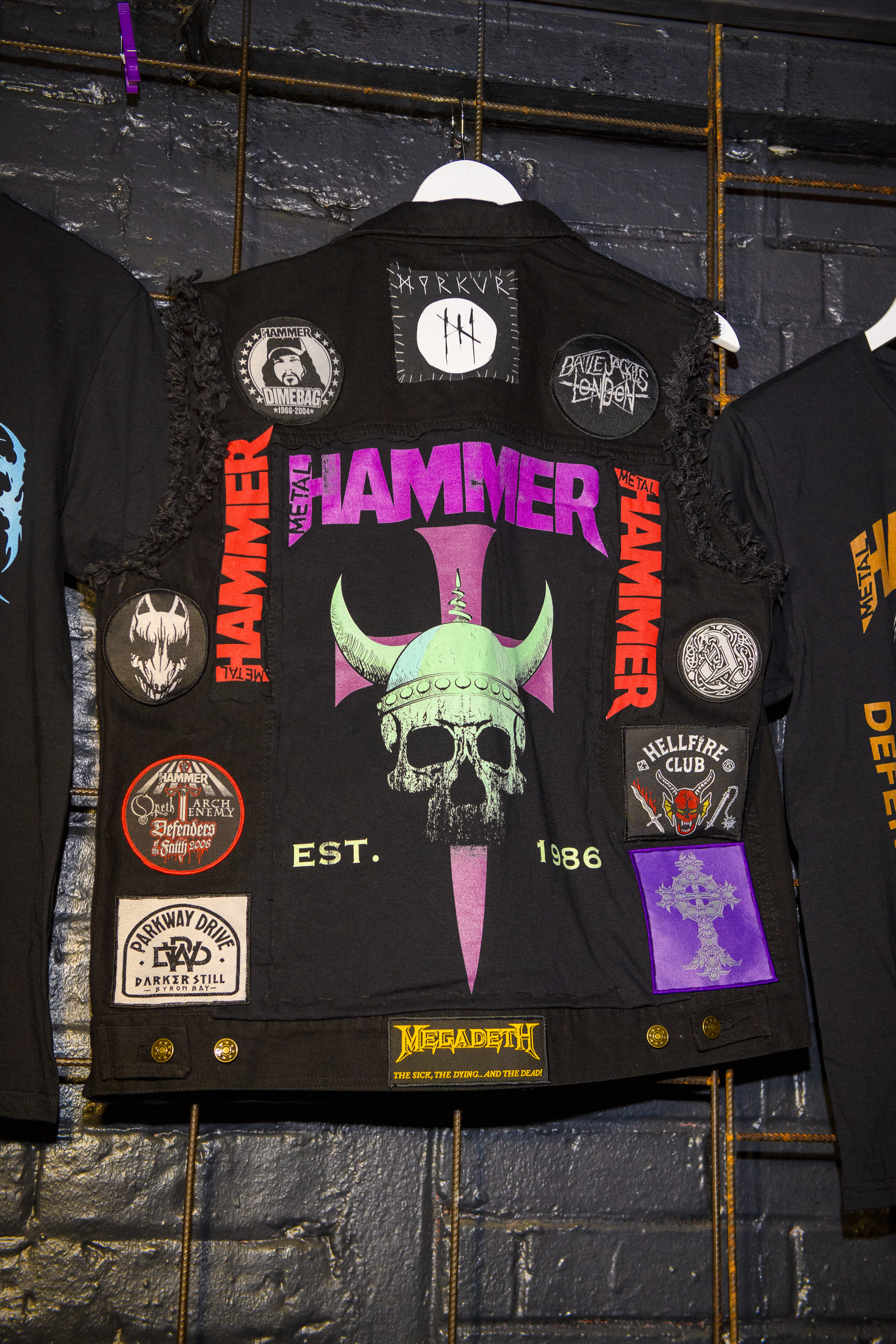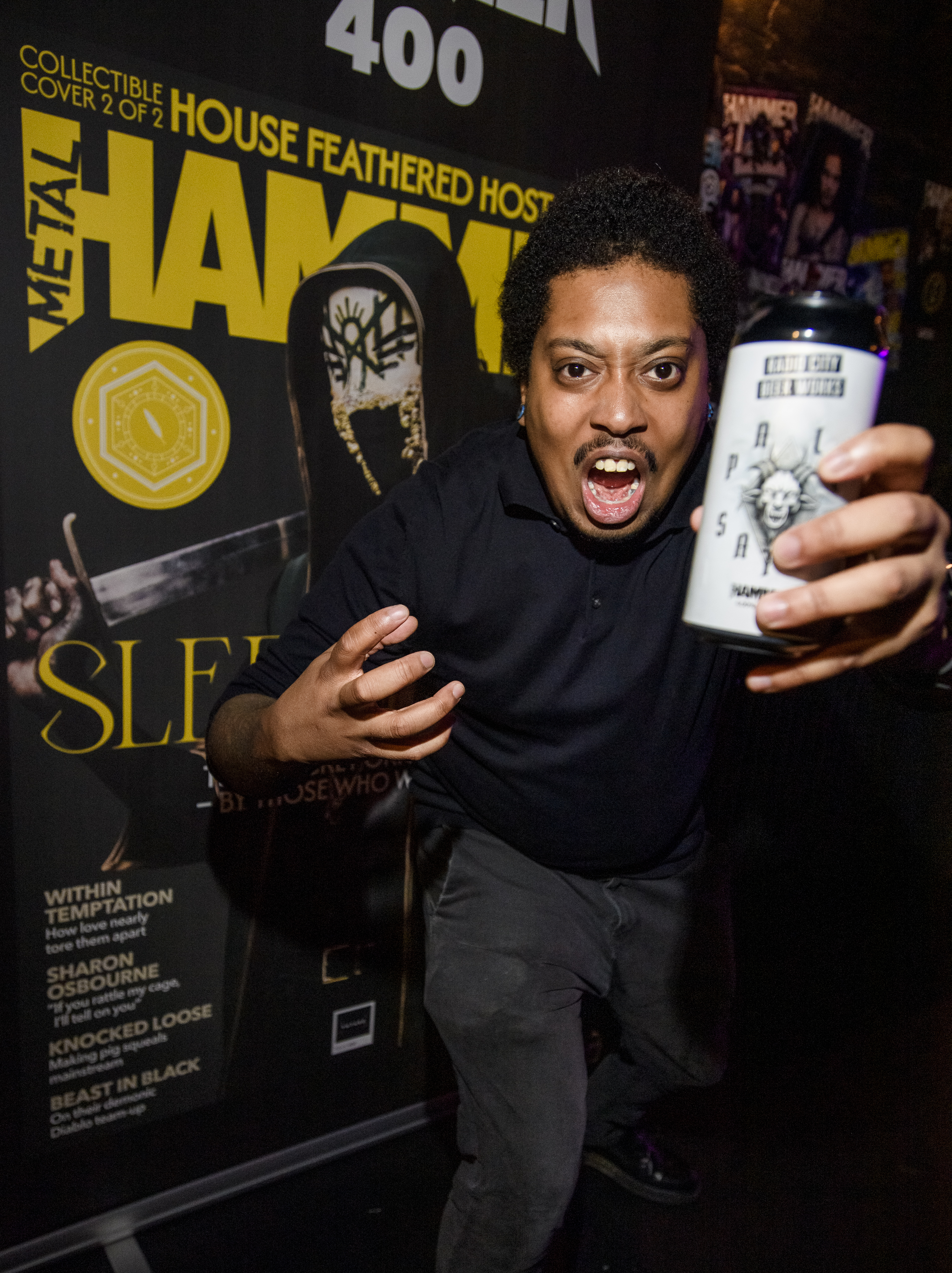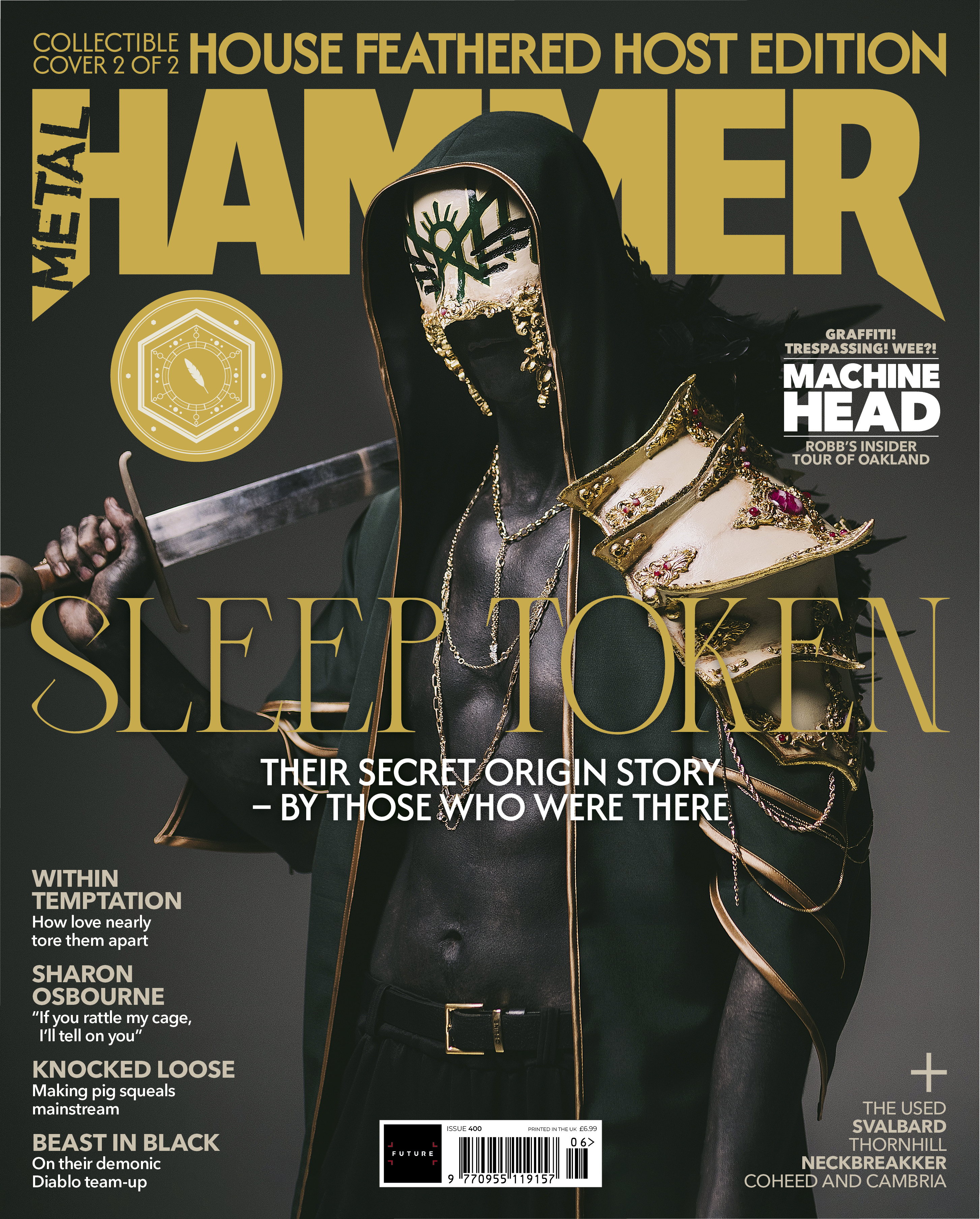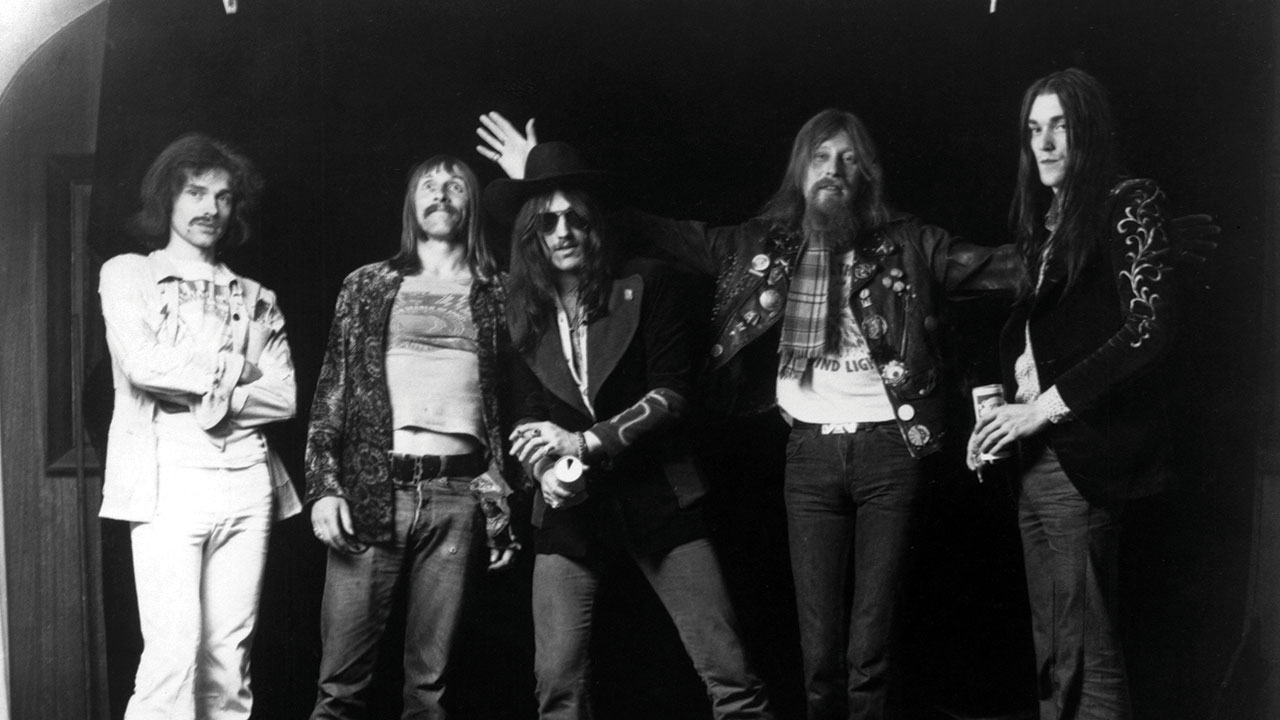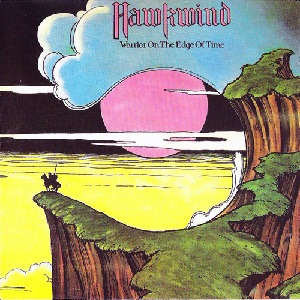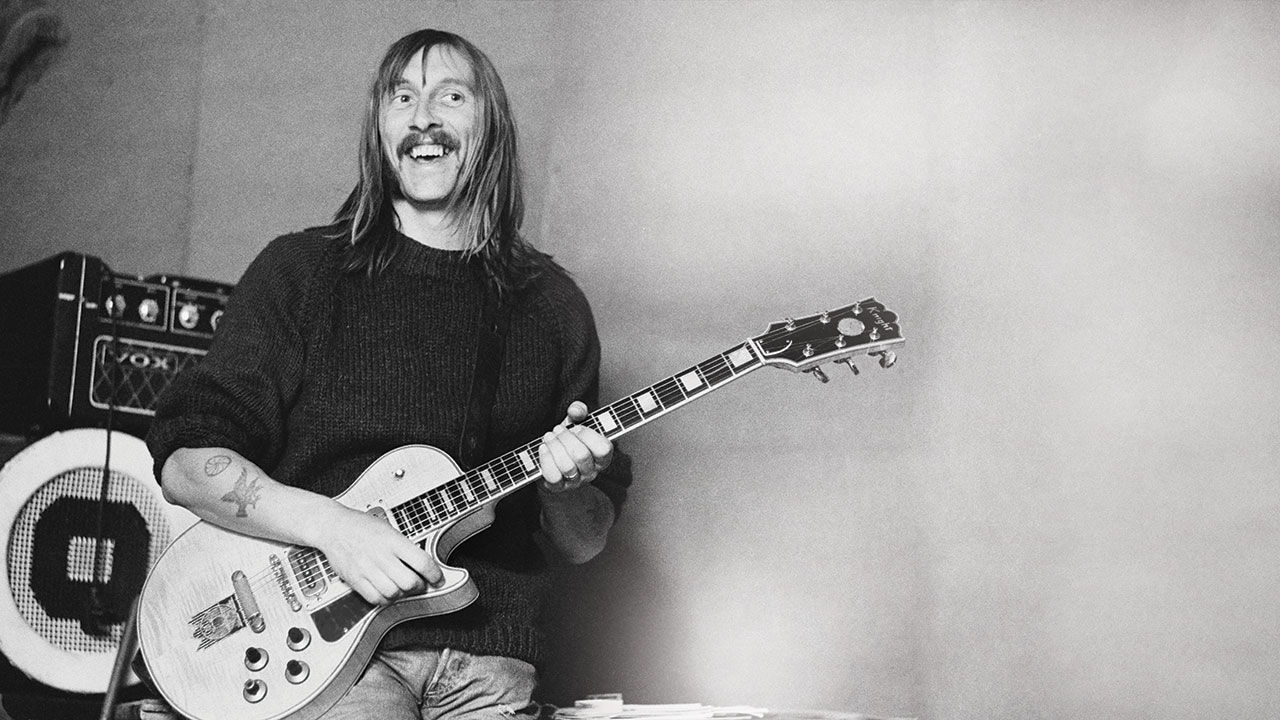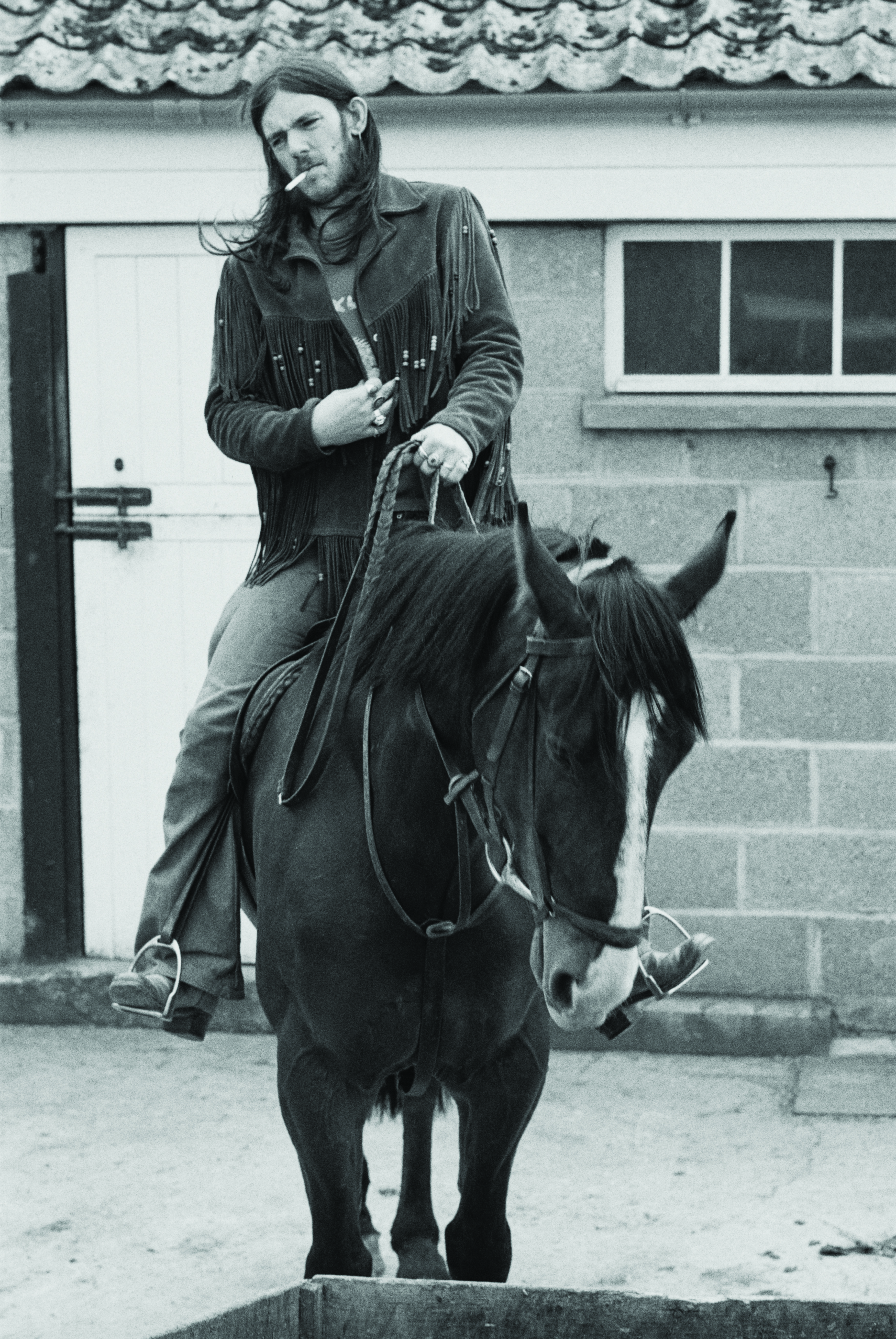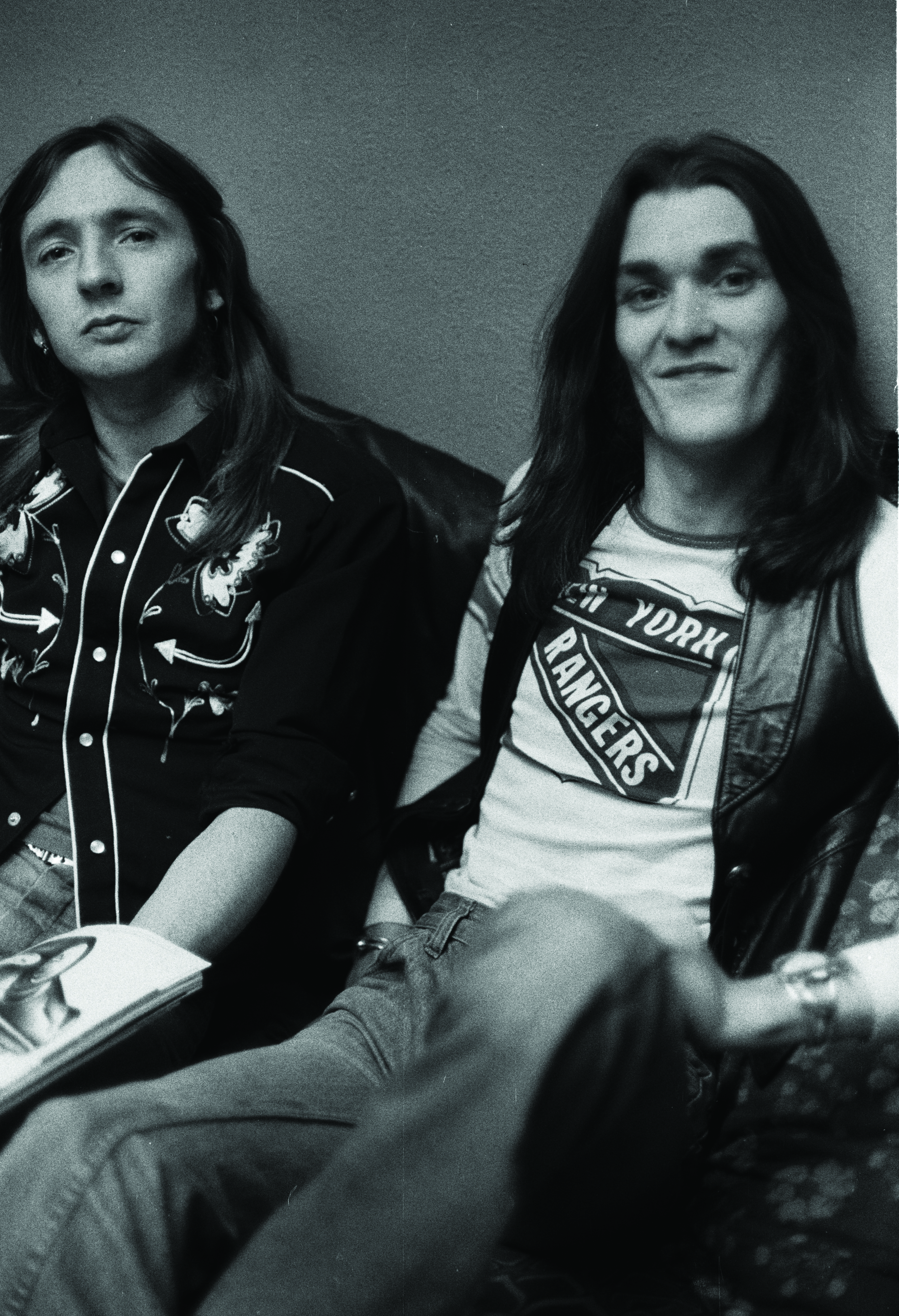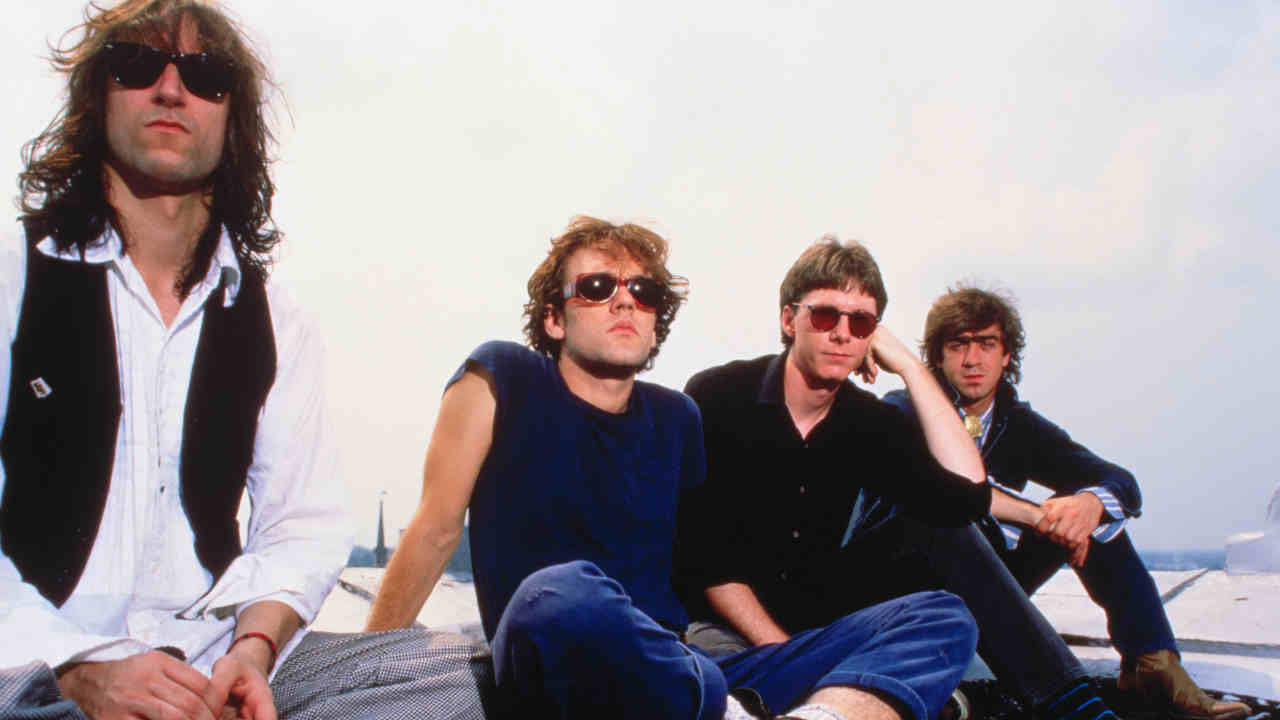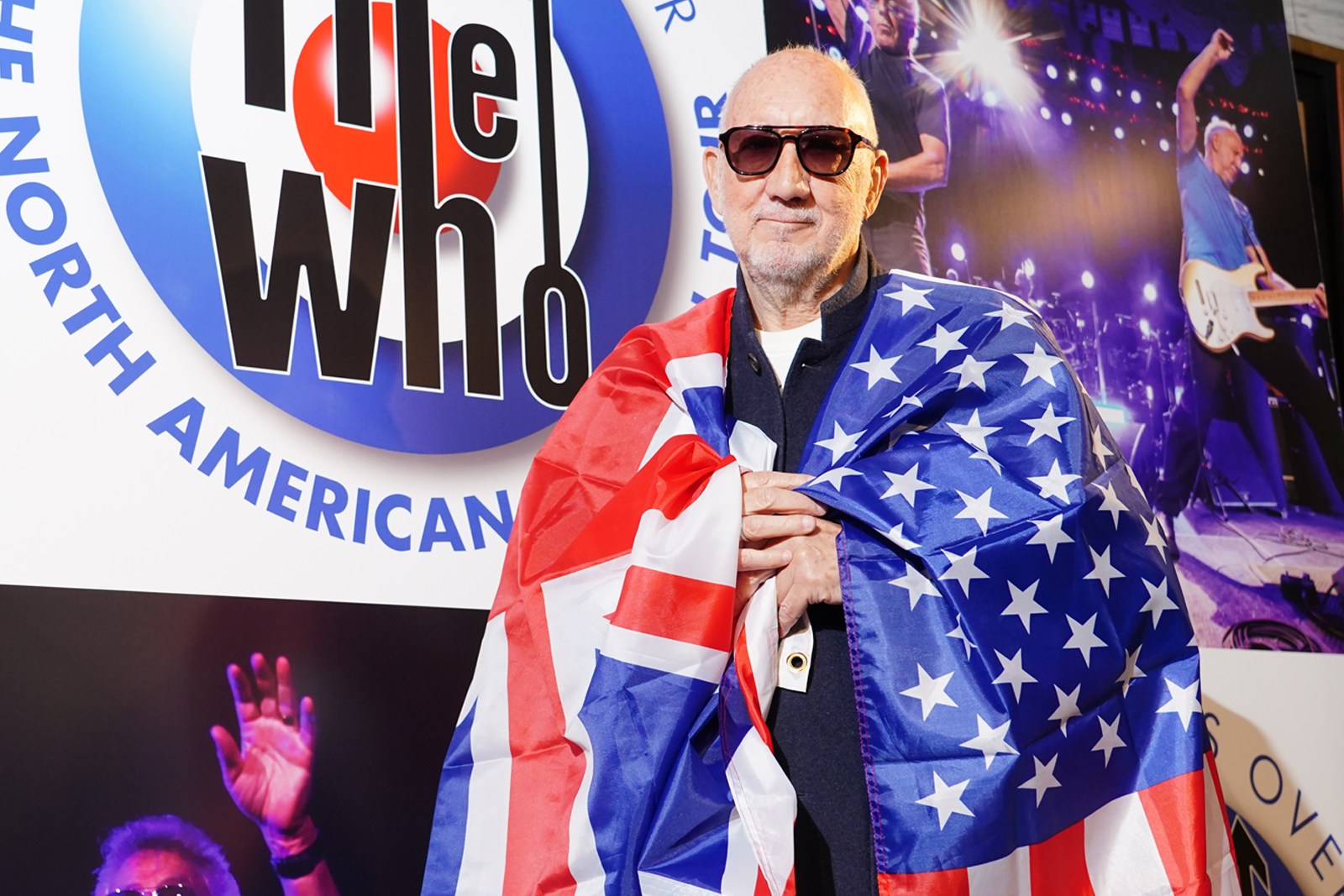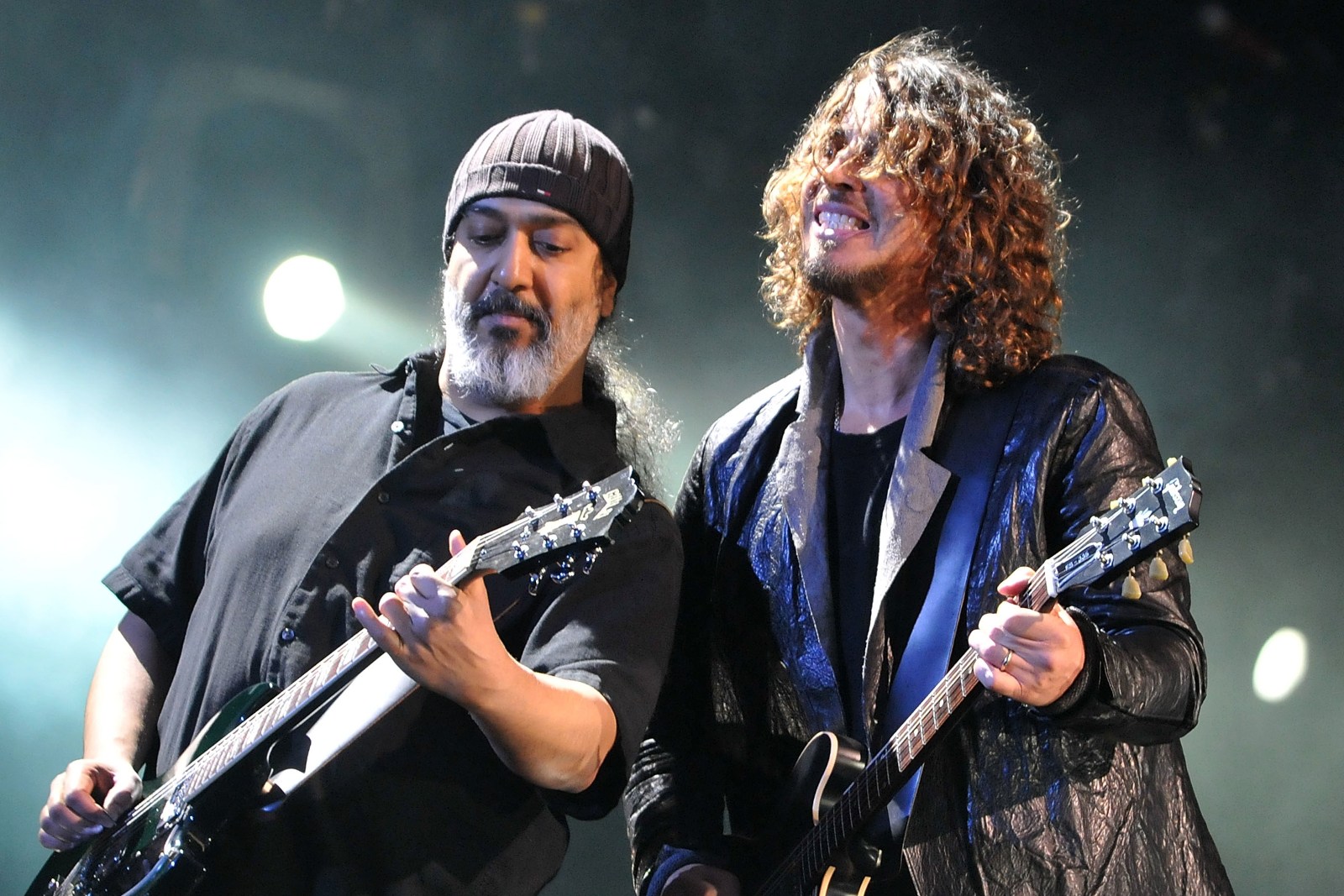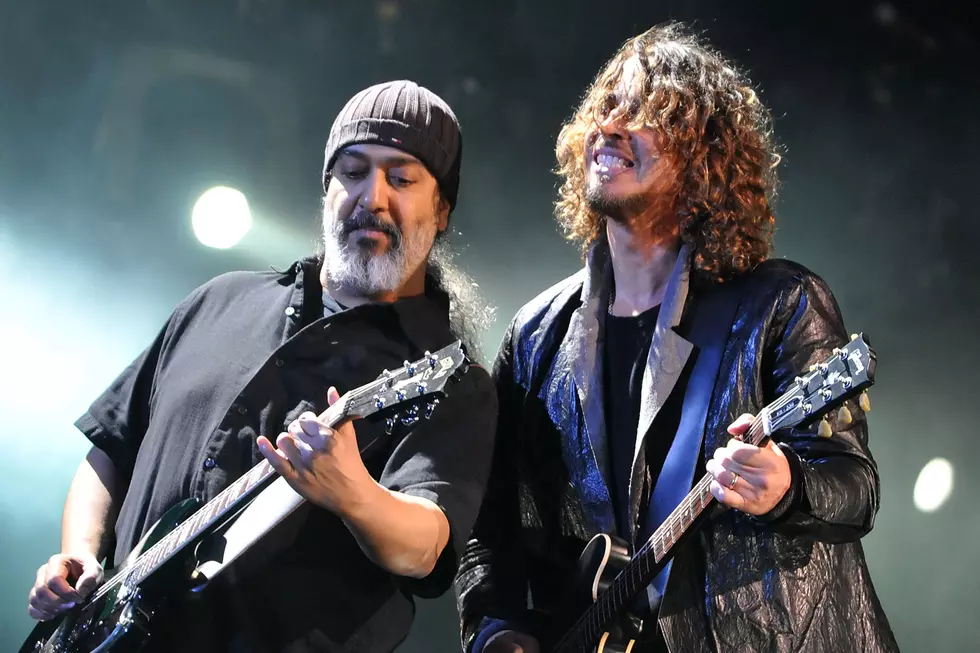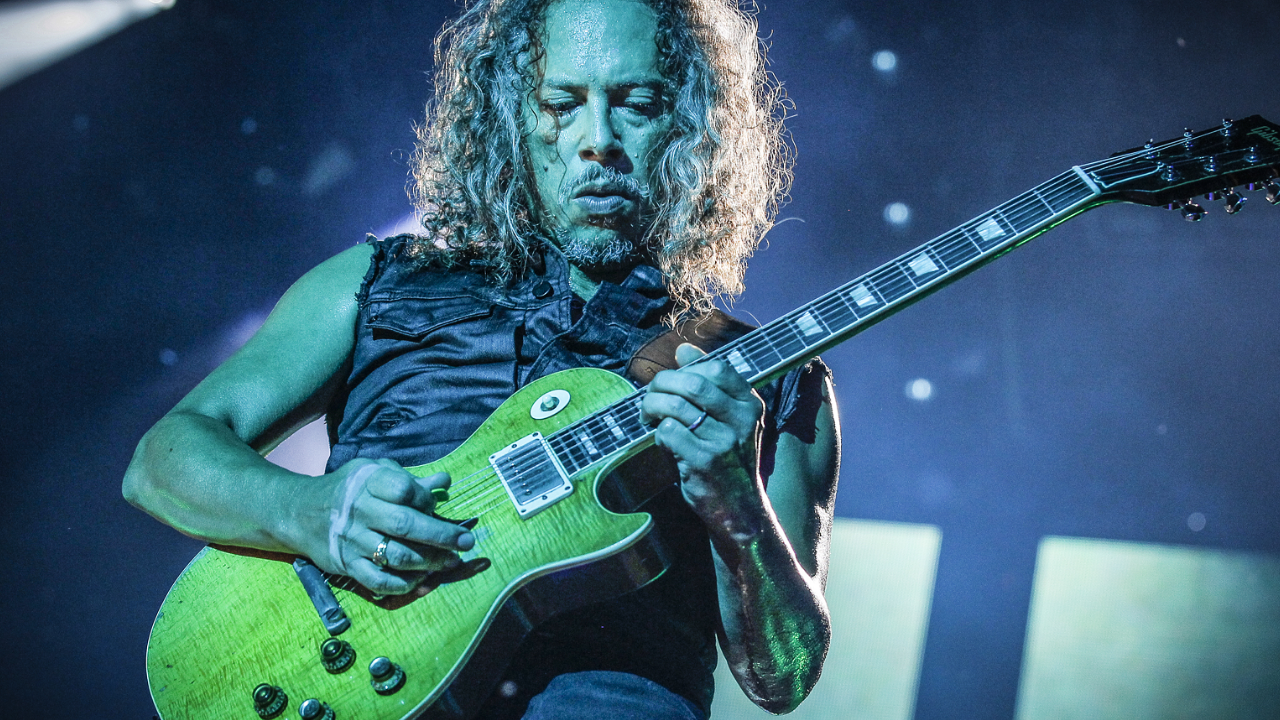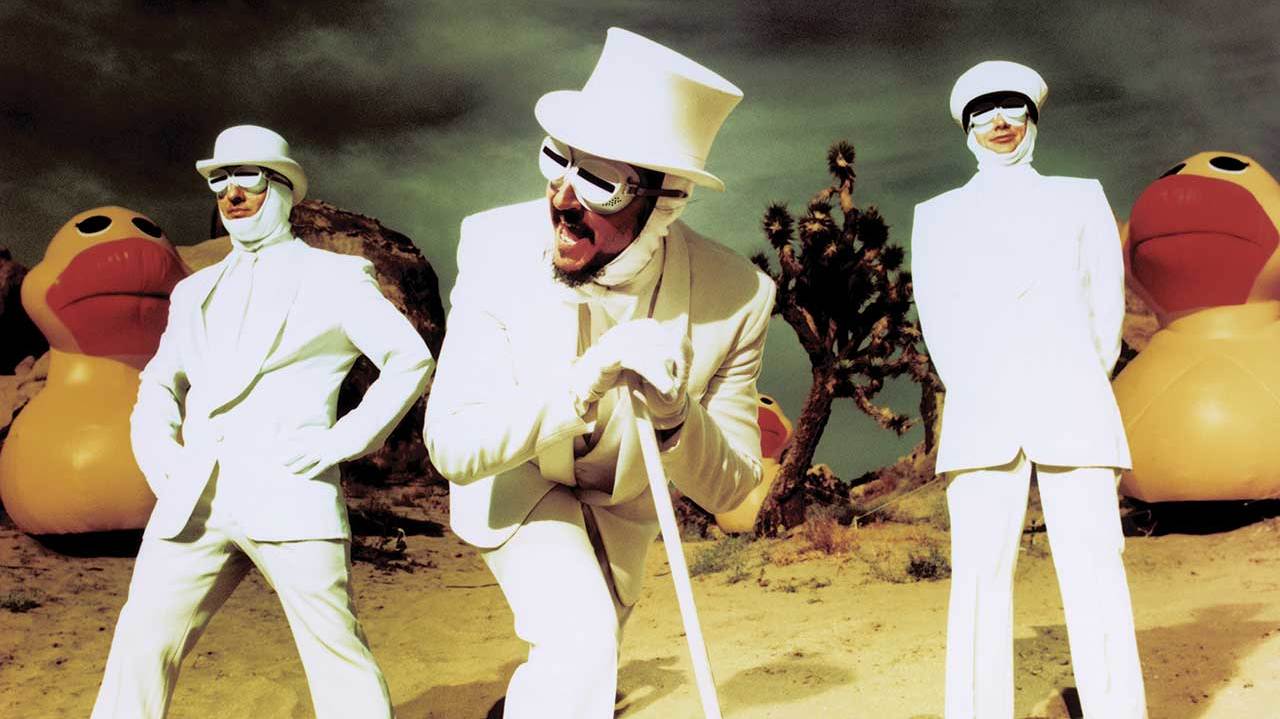“You ride into town with your gang, stealing money, drinking as much as you can and being gone before the law catches you”: How Bon Jovi hit the jackpot with Slippery When Wet, the album that turned them into the hottest hard rock band of the 80s
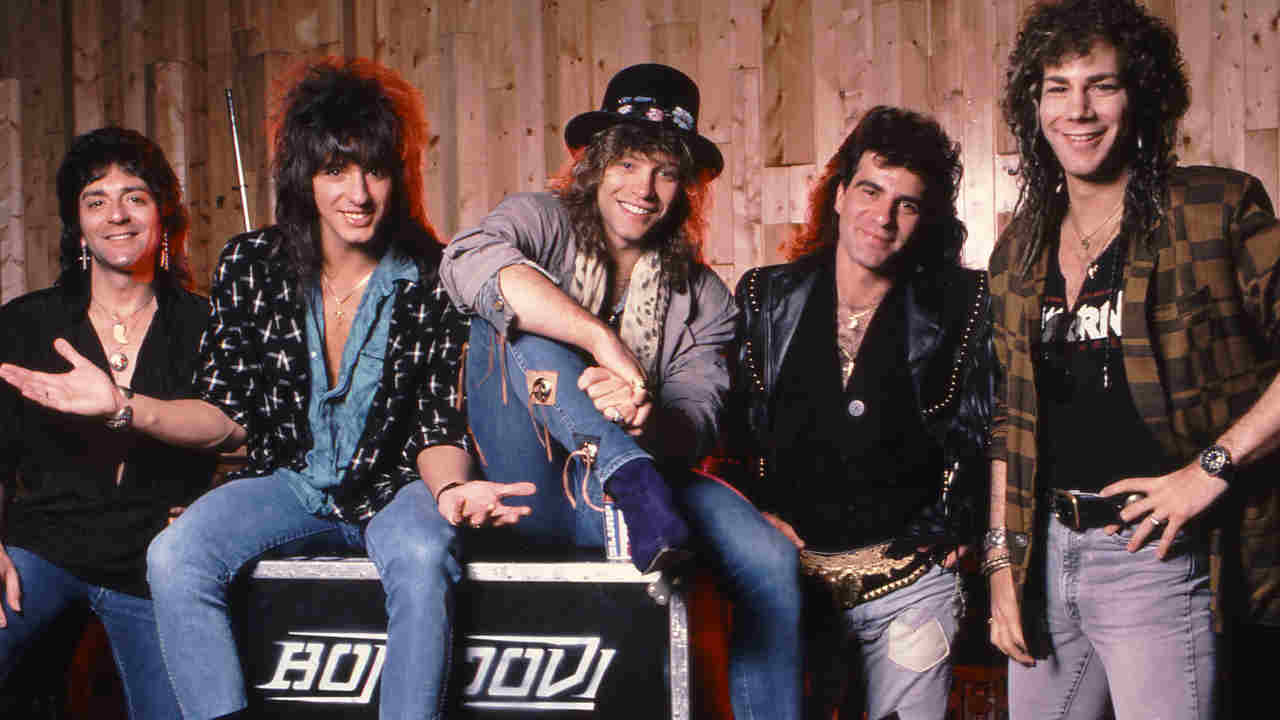
It’s July 1990 and hotter than hell in New York City. Jon Bon Jovi and I are perched on the first-floor veranda of his manager’s Manhattan offices, gazing out at the taxi cabs crisscrossing Central Park South. Jon explains this is the very spot he and the rest of Bon Jovi first met to plot the seeds of a success story none of them really believed possible. All except for Jon, of course.
“Back then we didn’t have the price of a cup of coffee between us,” he says. “You ask me has the success changed me since then, I say sure, man. It changes everybody.”
He looked downcast. He confessed that the mammoth, life-changing success of the band’s album Slippery When Wet four years earlier had affected him both positively and negatively. “I think I’m a little more cynical and sceptical. I hope I am nicer, but people will say what they want about you. Everyone’s got their stories, you gotta deal with them. I just hope there’s more good than bad. But on the outside I’m a lot more cynical these days. A lot more.”
It was true. You could see it in his much older man’s eyes. The gee-whiz 22-year-old I had first encountered backstage at Wembley Arena in October 1984 was long gone. In his place stood a jaded 28-year-old who’d already been everywhere and seen everything. As he’d begun one of his most prophetic songs, Wanted Dead Or Alive: ‘It’s all the same, only the names will change…’
Back in ’84, Bon Jovi had just played their first London show, opening for Kiss, and a friend had asked if I’d let “the kid” be my plus-one to the Kiss after-show party. Newbies Bon Jovi might be the support act, but that didn’t mean they got to hang out with the headliners.
Jon smiled nervously as I waltzed us past security straight to the free bar. He couldn’t stop thanking me. Kid in a sweet shop time.
He still had that wide-eyed ‘I must be dreaming’ demeanour when we met again six months later. Same big city, different, smaller venue: the Dominion Theatre. Bon Jovi’s first London headline show. Jon was so proud he flew his folks in from New Jersey for the occasion. When I interviewed him the next morning by the pool at his hotel, various family members were seated nearby waving and calling across to him.
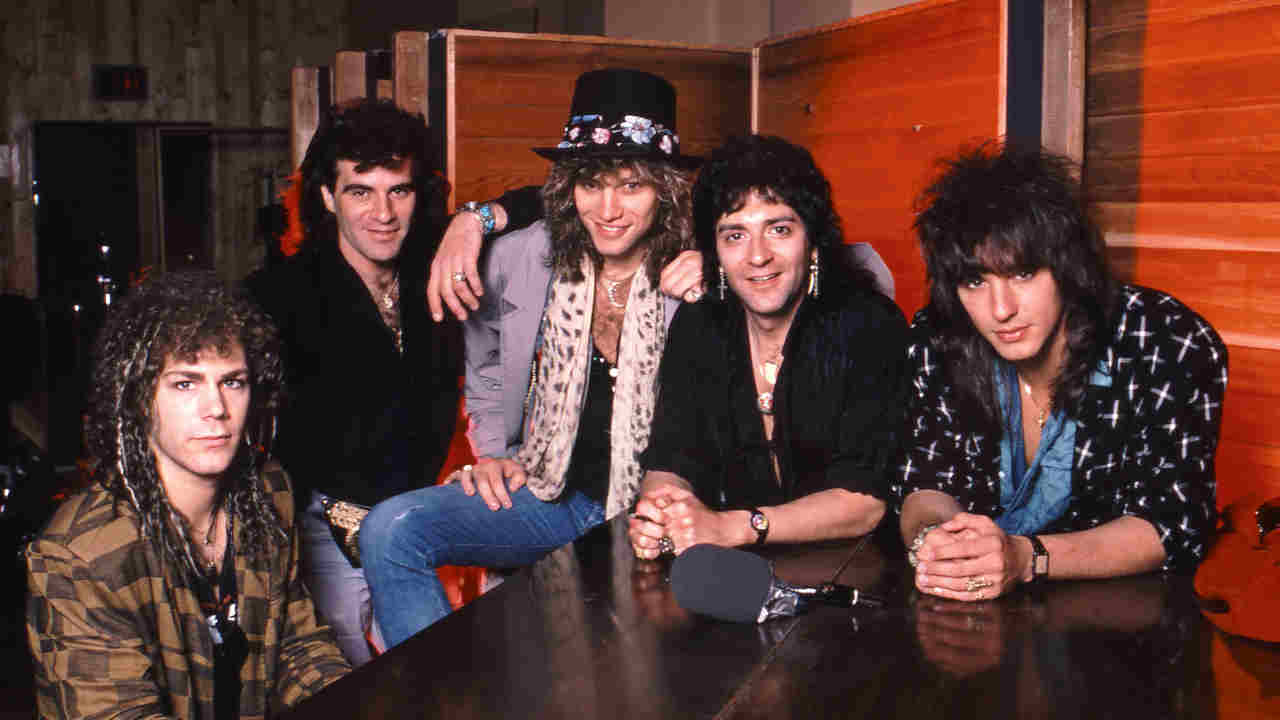
There had been two Bon Jovi albums so far and neither had made the earth move. Their first single, Runaway, had been pop enough to make US radio take notice, and Jon’s boy-band looks had helped the video score high with MTV.
Their debut album, Bon Jovi, released in January 1984, came smeared with rock credentials but diluted by outside writers: Runaway was junior Journey; Roulette, written by Jon and guitarist Richie Sambora, was jacked-up AOR; Shot Through The Heart was Billy Idol without the peroxide; the rest was Risky Business-meets-Ferris Bueller safety-first pop-rock. Fronted by a poodle-haired Rob Lowe type.
In Kerrang! a glowing album review was typically matched by a trashing of a live show. “I remember it very well,” Jon said. “‘Bon Jerk-off,’ I think the guy called us.”
Their second album, 7800° Fahrenheit, in March 1985, was consciously heavier – the title being the melting point of rock. Cos the rock’s so hot, baby! In order to emphasise its one-for-all authenticity, this time no outside writers were involved. This wasn’t a Jon Bon solo album in disguise. This really was an album written, sung and played entirely by the band. Well, that’s what it said on the credits, which even included a co-write for drummer Tico Torres on the chugalug Secret Dreams. Although none for bassist Alec John Such, 10 years older than Jon and not always first choice in the studio, put it like that.
The problem they faced was a familiar one for rock bands in the 80s: no hit singles. Not even a Top 40-adjacent ‘radio hit’ like Runaway. First single Only Lonely, co-written by Jon and keyboard player David Bryan, sounded like it was retrieved from the skip in which Survivor dumped their rejects. The second, In And Out Of Love, written by Jon, was Def Leppard without Mutt Lange. There was also an obligatory power-ballad single, Silent Night, that was so cringe-inducingly awful it made Mötley Crüe’s simple-minded Home Sweet Home, also released as a single that month, sound like I Want To Know What Love Is. None of 7800º Fahrenheit’s tracks would survive into their live show beyond the lifespan of the album.
Bon Jovi – Livin’ On A Prayer – YouTube 
Bon Jovi spent the rest of 1985 touring US arenas opening for then hot-as-a-pistol LA glam metallers Ratt. In August they were third on the bill at that year’s Monsters Of Rock festival at Castle Donington, beneath Marillion (then at their commercial peak) and ZZ Top (ditto) and one up from cool-as-fuck Metallica.
When the helicopter carrying Jon and crew inadvertently flew over the stage during Metallica’s set, however, hard-core Donington fans were outraged, interpreting it as a deliberate slight to Metallica. James Hetfield had the words ‘Kill Bon Jovi’ engraved on his guitar, and any hope Jon had previously entertained of his band appealing to serious-minded 80s metallists was crushed for ever.
They would continue crisscrossing America with Ratt for the rest of the year. By the final show in Las Vegas on New Year’s Eve, Bon Jovi were now all in with the Ratt crowd. On stage, Jon had taken to wearing tight, no-VPL spandex, leopardskin shirt undone to the waist, midnight-blue make-up, his fully-primped hair waving like corn in a field above a bright pink headband. Hey, it was 1985! Crüe’s Tommy Lee went on stage bare-ass naked in leather chaps. Even Ozzy was tottering around like a tattooed Liberace.
Looks wasn’t what was holding them back. Nor work ethic nor attitude, all of which Jon exemplified. Bon Jovi had big guns behind them. Hence the high-profile tours. But as far as record sales went, it was so far so meh.
As Bon Jovi’s larger-than-life manager Doc McGhee later told me: “It took a couple years building them from the ground up, but they were finally ready. We knew if we could just get one damn song on the radio, one big video on MTV, things could start to roll.”
But where did you find one of those?
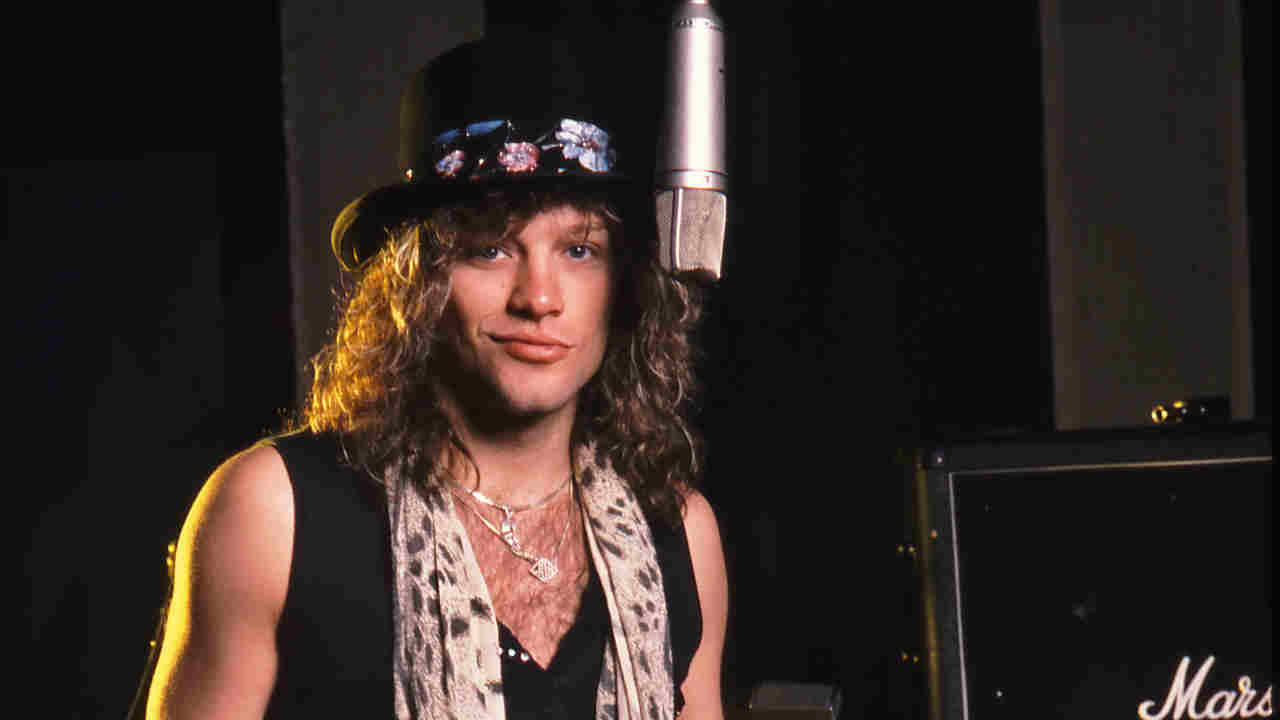
John Charles Barrett was a 32-year-old singer-songwriter from Florida known professionally as Desmond Child. After his own band, the R&B-driven Desmond Child & Rouge, flamed out, he tried writing songs for others. His break came when Paul Stanley invited him to co-write the 1979 Kiss disco hit I Was Made For Loving You. Child would go on to write or ‘co-write’ I Hate Myself For Loving You, Joan Jett’s bubblegum metal anthem, and Dude (Looks Like A Lady), the overnight rock classic that gave Aerosmith their biggest hit for 10 years. Child would go on to write so many hits for so many artists that he became one of a coterie of go-to 80s songwriters – which also included Jim Vallance, Holly Knight and Diane Warren – that everyone from Alice Cooper to Barbra Streisand sought out for hits.
But the keys to Desmond Child’s kingdom would be the songs he was about to co-write with Jon Bon Jovi and Richie Sambora. The ones that would transform them into superstars.
Child later maintained that when he first got together with Jon and Richie, “their scheme was they would collaborate with me because I was a pop writer, and we would pitch songs to other artists so they could make money and keep their band going. But the first day that we got together, I pulled out a piece of paper with the title You Give Love A Bad Name on it and Jon’s face lit up. So we wrote the song and they decided to keep it for their band, and we continued writing together.”
Paul Stanley introduced them and they hit it off immediately. Both Jon and Desmond were musical misfits shape-shifting to get by. Both leaned more towards Bruce Springsteen and Elton John than towards Judas Priest and Iron Maiden. Both were so ambitious that they would do whatever it took to make it big. Because both knew they had to. “There was no plan B,” Jon told me. “Even if we didn’t make it, I knew I’d still end up singing and playing in some bar in Jersey.”
“It was time for a do-over,” McGhee said. “New writers, new producer, new studio. It felt like last chance with the label so we had to give it our best shot.”
Early in ’86, they entered Little Mountain Sound studios in Vancouver, Canada where 36-year-old producer Bruce Fairbairn was waiting to take them to the next level – musically and figuratively.
Another talented musician whose own career never gained traction, Fairbairn had produced the first four Loverboy albums, all multi-platinum, two of them Top 10 in the US. Working out of Little Mountain with his protégé Bob Rock, in the same five years Fairbairn produced albums for Blue Öyster Cult, Krokus and Honeymoon Suite, whose The Big Prize went triple-platinum in Canada that year.
Bon Jovi – You Give Love A Bad Name – YouTube 
Like everyone associated, after doing Slippery Fairbairn’s career skyrocketed. Like Child, his next major gig would be working on Aerosmith’s big ’87 comeback album Permanent Vacation. After that, AC/DC were waiting.
“That’s what happens when you’re the guy that just produced a huge million-selling record,” Doc McGhee said, smiling.
The were several factors involved in that winning Slippery formula, however. “For the first time, we were allowed to be us in the studio,” Jon recalled. Fairbairn told Classic Rock in 2006: “I’ve been lucky enough to work with so many different talents. But Bon Jovi may be the finest. There was record company pressure to deliver the hits, but they were a joy. People seem to concentrate so much on their success that they lose sight of how good these guys are.”
Ultimately it was all down to the songs. The ones Desmond Child worked his magic on to help fashion into huge international hits. “Jonny was defining who he was,” Doc said. Once Desmond came on board and lit the way, Jon knew where to go. “He kept his formula of songwriting, the choruses, and all those hits, they all sound the same. Like everybody else. Elton John writes the same fucking song a hundred times.”
Child didn’t sit around waiting for inspiration to hit, either. He went right to work. He began by dismantling one of his existing songs, If You Were A Woman (And I Was A Man), written for Bonnie Tyler and included on her then just-released album Secret Dreams And Forbidden Fire. Child took the big vocal harmony intro and melded it with a Jon song from the first album called Shot Through The Heart. The result was the infallible rock classic You Give Love A Bad Name. “I saw Jon’s billion-dollar smile and we never looked back,” Child recalled with glee.
Desmond and Jon worked out the album’s other giant hit, Livin’ On A Prayer, sitting around a table in a dingy basement. Jon and Richie told Desmond “they wanted a working-class anthem”. So he did something he’d made it a rule never to do, and drew ideas from his own personal experience.
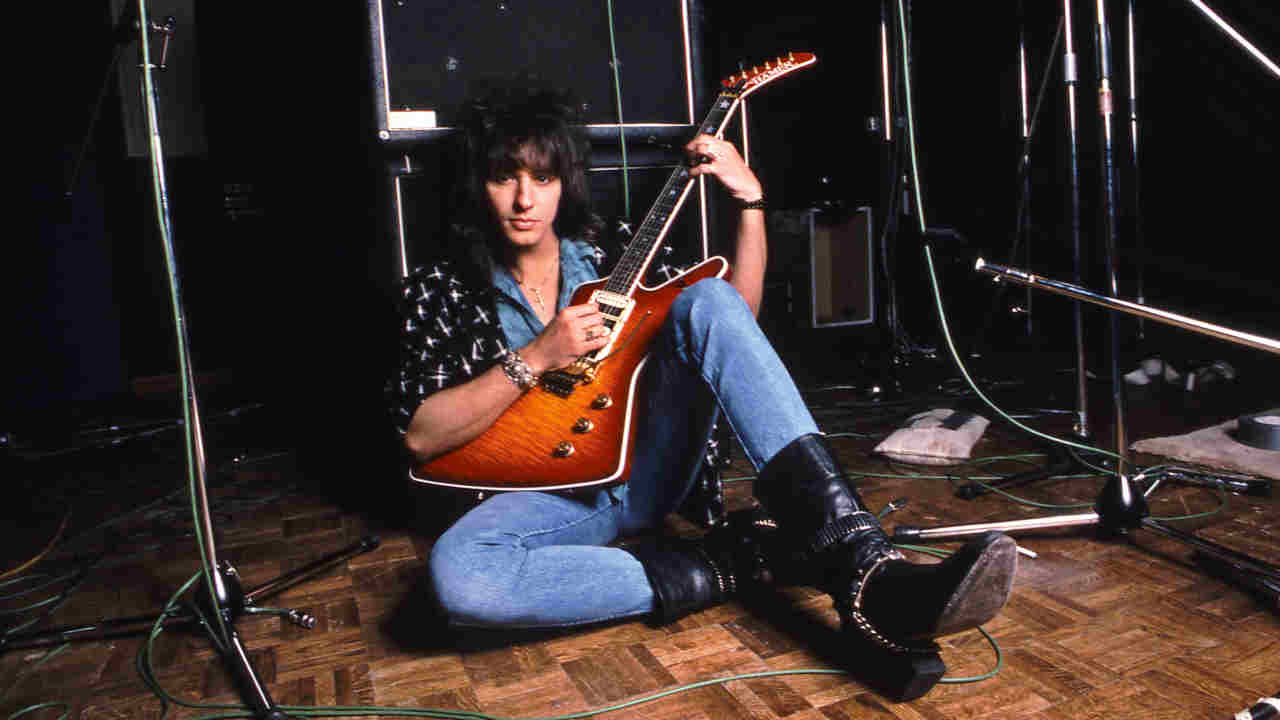
“The Gina character [who ‘works the diner all day’] is Maria Vidal,” he revealed. Maria had been in Rouge. “But [her] waitressing name was Gina Velvet.” As for Tommy with ‘his six string in hock’, “that’s me,” he said. “It was originally Gina and Johnny, but Jon said: ‘I can’t sing Johnny, that’s my name.’ So Johnny became Tommy. The struggling couple were ‘halfway there, livin’ on a prayer’, and the rest is history.”
The ingenious composer brought more than just words and melodies, though.“I read somewhere that the most successful music has some element of soul and R&B in it,” he said. “So you can hear that in Bon Jovi. The songs I co-wrote with them, the bass lines are just right out of Motown.” In particular Livin’ On A Prayer, whose crisp blend of white rock and black R&B could be traced all the way back to I Was Made For Lovin’ You. He knew that Bon Jovi “were supposed to be heavy metal”, but because they had a piano and organ “they had that Jersey sound like Southside Johnny and Bruce Springsteen, but with AC/DC and Rolling Stones mixed in”.
Desmond Child titled his 2023 autobiography Livin’ On A Prayer – Big Songs, Big Life. Because for him that song will always be “most special. To this day it’s the biggest song that I’ve ever collaborated on.
“In the beginning, Jon wasn’t thinking the song should go on Slippery– he thought it was too sentimental, maybe too soft. Richie and I got on our hands and knees and begged him. ‘Please, at least record the song.’ Then when they got in the studio with Bruce Fairbairn, and their engineer Bob Rock… magic happened!”
Bon Jovi – Wanted Dead Or Alive (Official Music Video) – YouTube 
Some years ago, I fell into conversation with a highly respected producer of music radio and TV. He was not an especially avid rock fan, he explained, but in his opinion Slippery When Wet was “one of the most perfect ten-out-of-ten records of all time.” He went on: “Technically it’s spot-on, the sound quality, the sequencing of the tracks, the whole thing feels like it’s been built in the laboratory to be absolutely perfect.”
I felt a ‘but’ coming on…
“No buts,” he said. “It’s quite perfect. That’s all there is to it.”
It was true. Side One, as it was originally conceived, was a flawless five-song suite. Opening with Bryan’s sonorous mad-maestro at the pipe organ intro to Let It Rock, this was heavy rock on the grand 70s-scale of a Deep Purple but with the added gloss of 80s-style Def Leppard harmony vocals. Five minutes-plus of Deep Leppard and Def Purple that became a returning musical mantra throughout the album.
From there it’s the wham-bam-blam of You Give Love A Bad Name and Livin’ On A Prayer, both of them destined to become No.1 in the US chart when they were released as singles in the summer and autumn of 1986.
All killer, followed, surely, by some quick-breather filler? Not a chance. Instead we’re off to groovy town with some sticky-fingered Rolling Stones in the form of Social Disease; rock as nasty stuff for badass boys – and especially girls; and the chef’s-kiss finale of Wanted Dead Or Alive, a self-mythologising cinematic epic that would serve for Bon Jovi as Stairway To Heaven had for Led Zeppelin. It was the first monumental Bon Jovi hit that Desmond Child had nothing to do with, written entirely by Jon and Richie.
If Side Two had merely comprised standard-fare 80s claptrap, Slippery would still have been an outstanding piece of work. Instead it continued to reach for the stars with two Jon-and-Richie standouts in the gloriously uplifting Raise Your Hands, and Never Say Goodbye, like one of Rod Stewart’s scarf-waving singlongs from the 70s.
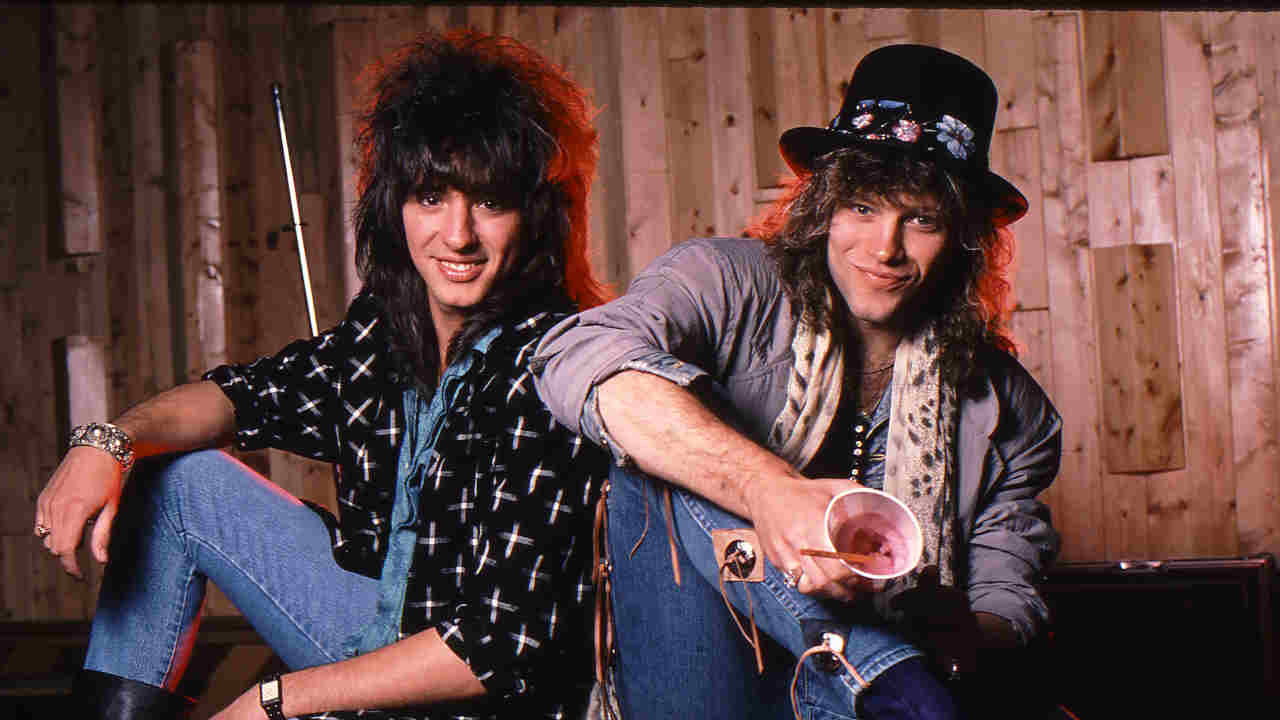
The album ended with Jon’s Wild In The Streets, his unashamed homage to Bruce Springsteen, if by homage you mean straight rip. But that Noo Joisey boy just loved him some Broooce. As evidenced by the other two numbers he and Richie co-wrote with Desmond Child: Without Love, which channelled the Boss’s 80s top-five hit Hungry Heart, and I’d Die For You, which sounded like every down-on-one-knee backstreet-testifying anthem Springsteen ever wrote.
Released worldwide in August 1986, Slippery When Wet was the first of what to date is six US No.1 albums for Bon Jovi. In the UK it reached No.6 and went triple-platinum. It also bent the charts out of shape in loads more countries, eventually selling more than 30 million worldwide.
By the time Bon Jovi returned to London in November for the first of four sold-out nights at Hammersmith Odeon, the band still exuded the elation of finally having made it – not just anywhere, but everywhere, all at the same time.
Afterwards in the dressing room, Jon was the same goofy lotto-winner as before. “I’m like the kid whose Christmases just keep coming,” he gurgled at me, all toothy grin and puppy-dog eyes.
Richie Sambora was the one who looked most comfortable in his new celebrity skin. He told me he was off the next day to meet up with his new best friend Jimmy Page at a guitar shop in Earls Court where they would spend the afternoon in the store’s basement “just jamming on all these great guitars”. He said he was hoping Jimmy might share some of his secret Zeppelin tunings with him.
Bon Jovi – Wild In The Streets (Official Music Video) – YouTube 
The next time I saw Jon Bon Jovi was when the band headlined Donington the following summer. Sequestered in his own purpose-built VIP-within-the-VIP section, the kid was now gone. The Slippery world tour was more than 200 shows old by then and still had another three months to go. Two nights before, they’d mimed their fourth single from the album, Never Say Goodbye, on Top Of The Pops before the band were taken out for the night at some millionaire’s pleasure dome in Soho.
Jon didn’t just look tired, he looked completely burned out. Sitting with him in his large empty dressing ‘area’, the conversation was stilted. I recall asking him what it was about the cowboy image evinced in Wanted Dead Or Alive that really spoke to him. His answer was telling, I still think: “It’s just that kind of lifestyle. It’s like life on the road. I feel that you ride into town, you don’t know where the fuck you are. You’re with your ‘gang’, stealing money, getting what you can off any girl that’ll give it to you, drinking as much of the free alcohol as you can and being gone before the law catches you – before someone wakes you from this wonderful dream and says: ‘You’re an asshole, you’re going to jail.’ Because it’s not the real world I’m living in. It’s a dream sequence, a big fucking wet dream.”
A slippery when wet dream, you might say.


